************************************
1. The Campaign to Destroy Kosova's Autonomy.
Many observers today agree that the present Yugoslav crisis has historical roots in structural defects of Yugoslavia, which determined the country's permanent instability. So it is no accident that this crisis should have manifested itself soon after Marshal Tito's death. Very soon it was realized that his charisma, more precisely his uncontested authority, had been a key element holding the balance in the delicate federation of Yugoslavia. For Serbia almost at once began to seek a redefinition of the federation, with the aim of either acquiring' complete hegemony in Yugoslavia or creating a Greater Serbia.
Serbia opened its campaign with Kosova, calling its long-established autonomy into question. Unfortunately the other Yugoslav republics, faced with Serbia's aggressive insistence, agreed to its demands for a reduction of Kosova's autonomy (naturally, until a later stage Serbia hid the fact that its real goal was a complete abolition of that autonomy), in the hope that sacrificing Kosova would satisfy Serbian appetites. The Albanians thus remained alone in their struggle to defend their autonomy, and Serbia received the go-ahead to use the authority, instruments and military and police potential, of the Federation itself in subduing Kosova. The Albanians offered a great deal of determined resistance against the Serbian campaign to destroy Kosova's autonomy, but in the constellation of forces/interests in the Yugoslav federation everything was against them.
In 1988, after an eight year systematic campaign of repression, Serbia was trying to finalize the project of abolishing Kosova's autonomy. In the public discussion regarding the proposed constitutional changes, organized in October of that year (albeit in an atmosphere of unprecedented propagandistic and psychological terror and enforced police repression), Albanians declared themselves in a plebiscitary manner against the changes
and for preservation of the autonomy that had been guaranteed by the constitution of 1974. Since in its final proposal for constitutional changes Serbia completely disregarded the will of the Albanian people, in November 1988 for ton successive days they marched from all the cities and villages of Kosova towards the capital Prishtina, where they peacefully demonstrated against the Serbian proposal to strip them of their autonomy. 800,000 Albanians took part, which is more than half the adult population of Albanians in Kosova. After this, Serbia deposed the leadership of Kosova headed by Azem Vllasi - which disagreed with its aims - and installed Rahman Morina, the Kosova police chief, as head of a new regional leadership. In protest against this act, some 4,000 miners from Trep�a on 20.2.1989 looked themselves deep in the mines and started a hunger strike. Nine days later Morina handed in an irrevocable written resignation - only to withdraw it as soon as the miners came out of the mine.
While preparing for the meeting of the Kosova assembly at which the voting charade was to take place, Serbian police questioned all the Albanian deputies (even including some who at the time were in hospital), threatening persecution of their families and their own liquidation if they did not vote for the changes demanded by Serbia. Nevertheless, on 23.3.1989 - the day this meeting took place - in order to make more certain the organizers filled all the empty seats in the Kosova assembly with civilian police and local functionaries of the Communist League: there is photographic evidence proving that these persons took part in the voting. On 28.3.1989, the day the assembly of Serbia was due to vote on these changes, in many cities of Kosova Albanians rose to demonstrate in protest. I In order to disperse these peaceful demonstrations, Serbian police used firearms and killed at least 23 persons.
In 1990, however, the new Kosovo assembly initiated a discussion aimed at annulling the imposed amendments. But Serb deputies in the assembly tried all kinds of procedural obstruction, and the police on several occasions prevented the entry of delegates, into the assembly building. This went on until June, when the Serbian parliament adopted a law that - in clear breach of the Yugoslav constitution - gave it the right to dissolve Kosova state organs. Now running against time, the Albanian delegates on 2.7.1990 in front of the assembly building adopted a Constitutional Declaration declaring Kosova equal to other Yugoslav federal units in any future federal or confederate arrangement. On 5 July 1990 Serbia took the decision to dissolve the assembly and government of Kosova; following this, the Serbian police dissolved all the organs of local authority in Kosova. On 7 September 1990 the Kosova assembly, meeting at Kacanik, adopted a new constitution under which Kosova proclaimed itself an equal republic within the future federation or confederation of Yugoslavia.
2. Consequences of the Abolition of Kosova's Autonomy
a) Police disbanded. 3,500 Albanian policemen were sacked.
b) Courts abolished. In seven cities, municipal courts were either closed down or abolished, while other courts were placed under 'imposed rule' from Serbia. 210 Albanian judges and public prosecutors were sacked. By decision of the Serbian authorities, the Higher Court of Kosova, the Constitutional Court of Kosova, the Public Prosecutor's Office of Kosova and the Court of Associated Labor of Kosova are to be abolished from 1.1.1992.
c) Economy destroyed. Almost all enterprises (380 up to now) have been placed under 'imposed rule'. Serbs have replaced all Albanian managers and higher personnel. Over 85,000 Albanian workers - around 70% of all Albanians employed in the social sector - have been sacked, either for participating in the one-day general strike of 3.9.1990 or because they would not sign a declaration supporting the introduction of 'imposed rule' (loyalty oath) and Serbian control over Kosova. If one bears in mind that an Albanian family on average has six members, this means that over 500,000 people have been left without means of existence: at the moment they are surviving only thanks to an impressive national solidarity. In addition, the Serbian police have started throwing these workers out of council flats. In general, economic activity has been practically paralyzed This year not a single industrial or public building has been built, &part from a few police barracks. The entire system of payments has broken down. Serbian sources themselves admit that economic activity this year in comparison with last year which was already very bad, is down by around 40%. The banking system has been destroyed: Kosova banks have been closed down and their assets taken over by Serbian banks (Albanian citizens cannot draw their money out).
Industrial plant has also been dismantled and taken away ('Kluz' in Glogovc; a factory manufacturing car components in Peje; a factory making suspension systems in Prishtina; etc). The Serbian authorities have, in addition, closed down 3,064 private Albanian businesses for one year, on the grounds that their owners solidarized with the general strike of 3.9.90. Taxes on private Albanian enterprise have risen by 600%.
d) The closing down of schools in the Albanian language Last year the Serbian authorities ordered Albanian schools to stop working according to the existing Kosova curriculum and change over to the new Serbian one. In the latter, Albanian history and literature are replaced by anti-Albanian and chauvinistic propaganda. During the campaign aimed to impose this new curriculum, rejected by Albanian teachers and pupils alike, the Serbian authorities at the start of the 1990-91 academic year closed down 11 primary and 4 secondary schools. From 1.1.1991, the salaries of 3,574 primary-school teachers and 6,000 secondary-school teachers were stopped. From 1.3-1991, the same
happened with the remaining 14,265 primary-school teachers. A few days before the start of this academic year (1991-92), the Serbian authorities decided to sack also the remaining 8,000 secondary-school teachers. 620 Kosova university teachers have also been sacked, and Albanian-language education completely ended. Primary schools have not opened. When teachers and pupils in some schools tried to open their classrooms, the Serbian police came in to prevent them. The police habitually use truncheons, tear gas, firearms and armored personnel carriers to disperse pupils and teachers, students and lecturers.
e) The destruction --of Albanian- 1anguage media On July 5, 1990 a Serbian special police unit suddenly attacked and occupied the Prishtina Radio and Television Center. Outside management was imposed. 1,300 Albanian journalists and other staff were sacked. The same happened to all local radio stations in Kosova. As a result in Kosova, where Albanians form 90% of the population, there is no Albanian-language television or radio. On 8.6.1991 the Serbian authorities banned Rilindja the only Albanian language daily in Yugoslavia. Also banned was the student journal Bota e Re where the police broke into and destroyed the premises, including the archives. Up to now 150 Albanian journalists have been prosecuted and sentenced, with prison sentences of up to 14 years (Hidajet Hyseni). Jusuf Gervalla, a journalist working for Rilindja, was killed in Germany by the Serbian secret police.
f) Destruction of the health institutions .All hospitals and clinics in Kosova have been placed under imposed administration. 1,500
Albanian doctors and medical staff have been sacked. The Serbian police used violence to throw out Albanian doctors, sometimes directly from the operating theatres. Sacked Albanian workers and their families (i.e. over 500,000 people) have no right to medical care. As a result, the level of health care of Kosova inhabitants, already the lowest in Yugoslavia and Europe, has fallen drastically. In the Gynecological Clinic of the Medical Faculty of Prishtina, for example, more than one-third of all births in Kosova would normally have taken place. However, all Albanian doctors and mid-wives have now been expelled and as a result, whereas in 1989 the Clinic had 11,652 births (93% by Albanian mothers), between 1.1. and 30.4.1991 there were only 823 births (less than 13% by Albanian mothers). Moreover, TB, previously on the decline, is now rising sharply again.
g) Occupation and blockade of cultural institutions. The Kosova National Theatre, the National and University Library of Kosova, the Institute of Historical Studies of Kosova, the Kosova Archives, etc. have all been occupied by the Serbian police. The police has forcibly expelled Albanian directors and most of the staff, introducing instead an imposed outside administration. Archival treasures of priceless value - key documents relating to Albanian history and Albanian-Serb relations - have been removed from the Kosova Archives, while in the National Library a major proportion of Albanian-language books have been destroyed on the grounds that they were enemy propaganda. Local libraries in the Albanian language are also being closed down (e.g. 12 such libraries in the commune of Podujeva). On 16.10.1991 the Serbian assembly passed a law closing down the Kosova Academy of Arts and Sciences.
h) Postal Services These have been placed under 'imposed rule' and practically all their Albanian workers sacked. In Albanian villages, local post offices have been closed down.
i) Red Cross. The Kosova Red Cross too has been placed under 'imposed rule'. Its Albanian staff has been sacked, while funds and aid collected beforehand, including food and medicine, have been confiscated.
j) Sport - 'Imposed rule' has been introduced also into sports 0 clubs and premises. The Albanian staff has largely been dismissed. Sports competitions have been stopped.
k) Usurpation of funds The Serbian authorities have usurped all Kosova funds for culture, education, health, sport, etc. They have stopped financing all Albanian institutions (the Albanian Studies Institute, the Academy, schools, journals, sports clubs, etc). By docking the pay of Albanian teachers alone, the Serbian government has usurped DM 122 million. This money is used to finance the police.
The repression conducted against the Albanian population in Kosova is total: it affects all aspects of life and all categories of the Albanian population. Between March 1981 and October 1989, 564,373 Albanians passed through police hands according to official figures. Since then the intensity of repression has grown vertiginously, to reach the figure of 740,000 individuals - at a time when the entire electorate amounts to just 1,051,000 persons. Here are some of the forms of repression:
a) Media terror Since 1981, the Serbian media have been conducted an intense anti-Albanian campaign, abusing Albanian history, culture and language. There has been a white terror against Albanian intellectuals and officials. Albanians are presented as a primitive people with destructive non civilized drives. We are dealing, in other words, with racist propaganda which aims to justify the violence conducted against the Albanians.
b) 'Ideological differentiation' This is a euphemism for Stalinist anathematization of people (counter-revolutionaries, iredentists, etc). The person who is anathematized - and as often as not his family too - lose all civil rights (the right to work, publish, etc). Between 1981 and 1989 this form of terror affected 700 primary and secondary school teachers and 18 university professors, while 2,000 students and over 1,400 pupils lost the right to education.
c) 'Isolation'. Euphemism for police kidnapping and imprisonment of people In March 1989 the Serbian police took away 245 Albanian intellectuals and officials without filing any charge against them. They were kept in prison for several months and badly beaten. The beatings were supervised by prison doctors, who decided on the number of blows. The families of the 'isolated' were kept in ignorance for weeks.
d) Political trials. These were organized continually after 1981, usually several of them at the same time. Up to 1989, 75,000 Albanians were prosecuted for political offences, 30,000 received sentences of up to 60 days in prison and more than 2,000 sentences of up to 20 years under 'strict regime'. Such trials were organized also in the Army, where 1,100 Albanians received sentences of up to 20 years in prison. Kosova deputies and former government members (now in exile) are also being prosecuted, together with Albanian political party leaders.
e) Demonstrators killed. The police uses highly concentrated tear gas for breaking up peaceful demonstrations, also firearms, dum-dum bullets, armored personnel carriers mounted with 12.7 mm machine guns, and helicopters. Since 1981 the police has killed 107 Albanians, including 18 children between 11 and 18 years of age (the majority shot in the back).
f) Mysterious Army deaths. Since 1981 the Army has sent back 53 dead Albanian bodies in metal coffins saying that they had committed suicide. The signs of torture and the nature of the
wounds in most cases refute this explanation. We must add to this number 30 more Albanian soldiers who have died in strange, circumstances during training.
g) Punitive expeditions. Since last year, the Serbian police has been organizing sporadic nightly raids on Albanian villages. The village is surrounded at night and attacked just before dawn. The police first shoots at the houses, then enters them, demolishing the furniture, destroying the food, looting women's jewelry and stealing money. They manhandle and beat the peasants. These raids as a rule end with a number of dead and wounded, as well as dozens of men arrested; these are then beaten and/or kept in prison for several days.
h) Poisoning of children. In April 1990 some 7,000 Albanian school children needed medical treatment with signs of spasms in the stomach and limbs, vertigo, reddening of ears, vomiting, shivering, etc. The Serbian police prevented the children from entering hospitals and persecuted Albanian doctors who helped them. Foreign experts (e.g. Bernard Benedetti of Medicins du Monde), basing themselves on blood analysis, established that the children had been poisoned by nerve gases. These poisoning happened after the Serbian authorities had decided that Serb children should attend school in the morning and Albanian children in the afternoon.
Apart from Kosova (2 million, or 90% of the population), Albanians live in ethnically compact territories in Macedonia, Montenegro and southern Serbia. In western Macedonia there are 800,000 Albanians or 40% of the population of the republic. In Serbia, according to the 1981 census, there were 72,484 Albanians living mainly in the communes of Presheva, Bujanovc and Medvegja,
where they form a majority. In Montenegro, there are about 55,000 Albanians in areas bordering on Albania (Ulqin, Plava, Guci, Tuz, etc). Macedonia and Montenegro solidarized with the repressive policy of Serbia in Kosova and undertook similar measures against Albanians living on their territories. Macedonia, especially, showed exceptional zeal in this regard by closing down even before Serbia secondary schools in the Albanian language, drastically reducing the number of Albanian pupils in primary schools, applying massively the instrument of 'political differentiation', organizing many political trials in which the sentences passed were even harsher than in Serbia, pulling down traditional Albanian houses, etc. Since last year, when the multiparty system became legalized, the intensity of repression has diminished - but it has not stopped. Two months ago the Albanian party leader, Nevzat Halili, was himself sentenced to sixty days in prison. The Albanians boycotted the recent referendum on the sovereignty and independence of Macedonia. Albanian deputies in the assembly did not vote for the new Macedonian constitution, since their demand that the constitution should guarantee Albanians equality in regard to national and civil rights had been rejected. Kosova is, therefore, only one
- albeit the central and most difficult - aspect of the Albanian question in former Yugoslavia. Despite the specificity of the various aspects of the Albanian issue, it represents a whole (Albanians live in an ethnically compact territory) and as such demands a comprehensive solution.
Kosova is at present cast into the shadows by the war in Croatia. But it is a fact that this crisis point could escalate into a full-scale armed conflict, which would then arguably involve an even greater military potential than the war in Croatia, especially since it would spill over the borders of former Yugoslavia.For this reason, neglect of this question by Europe and the USA is unwise.
Some observers believe that Serbia's repressive measures in Kosovo are designed, among other things, to provoke 'an Albanian armed uprising so as to create an alibi before world public opinion for a full-scale military intervention, leading to mass expulsion of Albanians and their replacement by Serb settlers. This 'Serb intention has been articulated especially by the Chetnik leader Vojislav Seselj, who at the beginning of October 1991 in Prishtina declared that it would suit Serbia very well at this moment if Albanians were to stage an uprising, thus allowing Serbia to solve this problem once and for all. It is in this context that the Serbian propaganda claim that 500,000 immigrants from Albania are living in Kosova should be understood (despite official statistics showing only 726 of them), as well as armed incidents on the Yugoslav-Albanian border in which Yugoslav soldiers and Serbian policemen have killed 10 Albanian soldiers and civilians.
Up to now the Albanians in Yugoslavia have manifested a high degree of self-discipline, answering all Serbia's repressive measures by peaceful resistance. In this way they have demonstrated an enviable democratic culture, believing that a just and lasting solution to the Kosova/Albanian problem can be achieved only by peaceful means, and placing their hopes in the international community creating the framework for a political solution to the Yugoslav conflict. However, the Hague Conference was a great disappointment to them, given that Kosova's representatives were not invited to attend. By not inviting Kosova's legal and legitimate representatives to the Hague, the European Community has drastically infringed the principle of non-recognition of changes achieved by force. For Serbia has achieved all the changes in Kosova by naked force. These changes not only have no democratic legitimacy, they also stand in total contradiction to the Yugoslav constitution. According to this constitution, Kosova is one of the eight federal units and, on the basis of principles of legality and international law, one of the eight inheritors of the state subjectivity of Yugoslavia. For this reason, Kosova should be recognized as an equal participant at the Hague negotiations.
Kosova, and the Albanian ethnic territories in Yugoslavia, remained outside the borders of the Albanian state on the basis of the decision of the London Conference of 1913. In reality, Serbia had simply occupied these ethnic Albanian territories already liberated by Albanians themselves - at a time when the Albanians were weak and exhausted following three years of anti Turkish uprising (1909-12). Breaking with the ethnic principle and the principle of self-determination, the Great Powers recognized in 1913 the result of this occupation. Today the Albanians expect of the Hague Conference and other international forums that they should correct those unjust decisions of the London Conference, which lie at the foundation of their tragic history over the past eighty years. Up to now they have shown a sense of realism, and a readiness to respect the Helsinki principle of inviolability of international borders. They have accepted the idea of entering an association of Yugoslav republics, provided that they are treated as equal i.e. that Kosova is recognized as a republic.
Albanians will not accept any solution that negates their right to self-determination, the right to free existence. Today they are an educated people (with 50,000 having graduated from Prishtina University alone, while several hundred thousand have completed secondary school). They have passed through the stage of industrialization and the Sociocultural transformation associated with it. They have, with rare sacrifice, preserved and developed their national identity (language, culture, national consciousness, authentic traditions, etc). Over the past eleven years, they have shown that they are ready to sacrifice everything to defend their natural right to self determination, freedom and independence. They have confirmed all this by their massive participation in the referendum for a Kosova Republic, sovereign and independent state with the right to participate as a constitutive element in the possible alliance of republics of Yugoslavia organized by the Kosova assembly on 26 of September 1991. Though the Serbian police did everything it could to prevent this referendum, out of 1,151,000 registered Kosova voters 914,802 or 67.01% voted, and of these 913,705 or 99.679 voted in favor.
Isuf Berisha
President of the Association of Philosophers and Sociologists of Kosova
London, December 1991
Note: This document has been presented for informative purpose only. Since it was written in 1991, many conclusions drawn here are no longer supported by Kosova's population.
Alb-net.com group
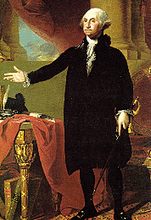
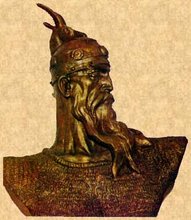
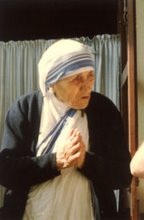




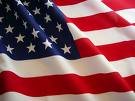



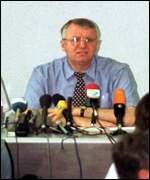
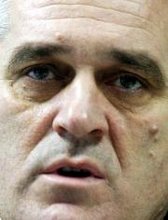








No comments:
Post a Comment